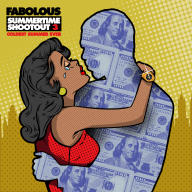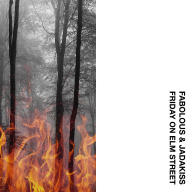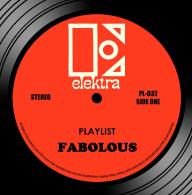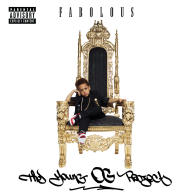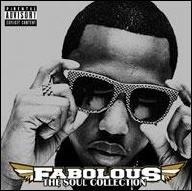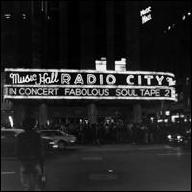The rapper born John David Jackson got his break when he performed on DJ Clue's Hot 97 radio show. Signed to Clue's then Elektra-supported Desert Storm label, he hit number 25 on the Billboard Hot 100 with his 2001 debut single, "Can't Deny It," a Rick Rock production featuring a 2Pac sample and a Nate Dogg vocal. It preceded his debut album, Ghetto Fabolous (2001), which reached the Top Ten of the Billboard 200 and included a second Top 40 single, "Young'n (Holla Back)." When Fabolous returned with Street Dreams (2003), he capitalized on his initial renown, racking up three major hits: "Trade It All" (originally from the Barbershop soundtrack), "Can't Let You Go," and "Into You." The latter two both climbed to number four on the Hot 100. By the end of 2003, Fab's first two albums were certified platinum. He also issued More Street Dreams, Pt. 2: The Mixtape in time for the holiday season. Comprising various street-level recordings originally released on mixtapes, it reaffirmed Fabolous' hip-hop credentials in the wake of his pop crossover singles. The following year brought with it another album, Real Talk (2004), which boasted a monster Just Blaze production, "Breathe," Fabolous' toughest Top Ten pop hit.
Meanwhile, Fabolous' hits as a featured artist were piling up. He was on Lil' Mo's Top 40 hits "Superwoman, Pt. 2" and "4Ever," but Christina Millian's "Dip It Low" was even bigger, reaching number four in 2004 and nominated for a Grammy in the category of Best Rap/Sung Collaboration. Although Fab seemed to be peaking commercially, he was relatively quiet during 2005 and 2006. Shortly before the scheduled release of his next album in late 2006, he made headlines when he was shot in the leg and subsequently charged with weapons possession. Def Jam, which signed Fabolous after sending Musiq Soulchild to Atlantic in a unique artist-trade situation, released From Nothin' to Somethin' (2007). The album debuted at number two on the Billboard 200 and spawned a series of singles, including the Top Ten hit "Make Me Better" featuring Ne-Yo. After he appeared on Lil Wayne's Tha Carter III, a Grammy Album of the Year nominee, Fab closed out the decade with Loso's Way (2009), a loosely conceptual full-length inspired by the film Carlito's Way. It not only continued his streak of Top Ten Billboard 200 LPs, but also topped the chart. "Money Goes, Honey Stay," featuring Jay-Z, was up for a Grammy in the rap field, Fabolous' first nomination as a headliner.
Fabolous began the next decade with There Is No Competition 2: The Grieving Music (2010), a "concept mixtape" aimed to bury rival rappers. An assortment of tapes followed the next couple years. Although a pair of singles was released in 2013 to promote Loso's Way 2, including the charting Chris Brown collaboration "Ready," the album was eventually scrapped after continual delays. Fabolous continued instead with The Young OG Project (2014), packed tight with guest appearances from the likes of Rich Homie Quan, French Montana, and Chris Brown. Fab's sixth proper album, it peaked at number 12 on the Billboard 200. A few more tapes and a couple EPs, including the first two installments in the Def Jam-released Summertime Shootout series, followed into 2016. After a Top Ten full-length collaboration with Jadakiss, Friday on Elm Street (2017), he put together Summertime Shootout 3: Coldest Summer Ever. Classified as a proper album, it entered the Billboard 200 at number seven, pushed forward by tracks such as "Ooh Yeah" (with Ty Dolla $ign) and "Choosy" (featuring Jeremih and Davido).
Into the 2020s, Fabolous was heard mostly through guest appearances and other collaborations. "Brick After Brick," recorded for the television series Godfather of Harlem, paired him with Westside Gunn. Fab contributed to Snoop Dogg Presents Algorithm on "Make Some Money." After these and other featured verses, Fabolous returned in 2022, joined by French Montana, with "Say Less," his first headlining single in a few years. ~ Andy Kellman & Jason Birchmeier, Rovi


